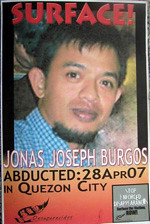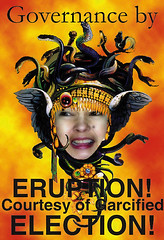Blogs putting pressure on traditional media

LOS ANGELES -- It may be that the emergence of alternative modes of mass information are giving traditional print media a case of jitters.
The question asked is whether or not traditional journalism should be intimidated by the new forms of information such as websites and "blogs".
This writer attended a conference in the past in which experts in the trade advised that technological advancement should not be perceived as competition nibbling on the fringes; rather, it should be embraced with resilience in order to stay afloat and enhance journalistic end and productivity. They advised on how best to exploit the new information technology to enable messages in a generation that is more and more preoccupied with increasing number of devices competing for attention.
The speakers included Sue Cross, vice president-online for the Associated Press; Andrew DeVigal, incoming multimedia editor of The New York Times; Judy Griesedieck, award-winning photojournalist; Kevin Keane, executive editor and vice president-news for six ANG Newspapers in the Bay Area; Logan Molen, vice president of interactive media, The Bakersfield Californian; and Michael Parks, director of the Annenberg School of Journalism, University of Southern California.
They spoke of the challenges of changing times that require the building of bridges to the community, reaching out to younger audiences, and using photos, sound, graphics, online mapping and original documents to help news consumers understand trends and information in the neighborhood.
Websites and more recently, blogs, are considered great equalizers because both the well-heeled and upstart users are projected on the same footing in the virtual world. These new forms also offer ease of use, 24/7 accessibility, and interactive capabilities.
Lisa Stone, seminar moderator, said that journalists should gravitate toward the blog technology because it "is the fastest, easiest reporting tool that exists." The co-founder of www.blogher.org, Ms. Stone had also launched successful blog networks and interactive programming for many national brands. She is the first Internet journalist awarded a Nieman fellowship (2002).
Regarding competition in the trade, Ralph Gage, chief operating officer of the Lawrence [Kansas] Journal-World, recalled a time in 2001 when big city papers and television operations from Topeka and Kansas City started to encroach on the company's advertising base. The World Co. reacted by merging its cable, print and Internet operations transforming it into "one of the most converged newsrooms in America, with newspaper, TV and online journalists sitting side by side, sharing ideas and resources."
Bill Snead, senior editor of the same publication, commented that "when you have passion, put a lot of yourself in there. If you don't have original idea and the capacity to follow through, you will not be capable of rising above the ordinary."
Joe R. Howry, editor and vice president of the Ventura County Star, also found the need to reshape his publication into a multimedia journalism operation in order to be competitive with the changing times. Eight reporters were put through a six-week boot camp in multimedia journalism and they all had to learn "to think about our stories differently, to seek out different voices in our communities as sources and to tell our stories differently and from different perspectives."
Michael Skoler, executive director of the Center for Innovation in Journalism, American Public Media, said: "On any given story, some people in the audience know more than even our smartest reporters and editors." He adopted a model that establishes "a systematic way to tap into the vast expertise and insight within the public, and then brings that knowledge into our editorial process to create deeper, more relevant news coverage."
Jane Ellen Stevens, multimedia journalist and UC Berkeley faculty member, is an advocate of "backpack journalism". "With the web swallowing everything," she said, we have opportunities that we've never had before to provide people with more complete storytelling and information, and to involve them in the process. [This] is good news for health reporting."
The conference was hosted by the New America Media and California Endowment Health Journalism Fellowships at USC's Annenberg School for Communication in Los Angeles to hear and learn from experts -- Text and photo by Dionesio C. Grava
*********************************************************************************
 Dionesio C. Grava - Community journalist based in Los Angeles. Member of New America Media, Society of Professional Journalists, and Society of Environmental Journalists, among others.
Dionesio C. Grava - Community journalist based in Los Angeles. Member of New America Media, Society of Professional Journalists, and Society of Environmental Journalists, among others.
POGB will not sell, exchange, use or allow any 3rd party access to your email for
any other purposes without exception, email exclusively for article updates only.
























0 Speak Out:
Post a Comment